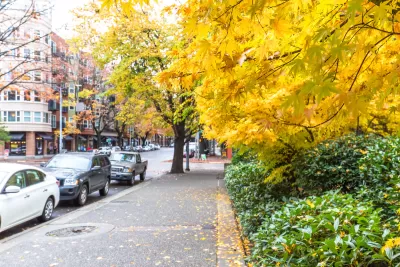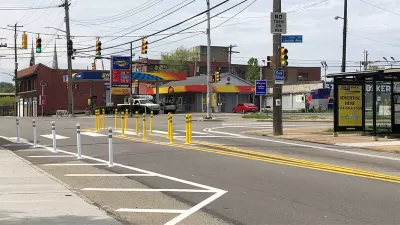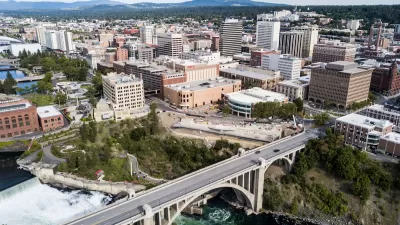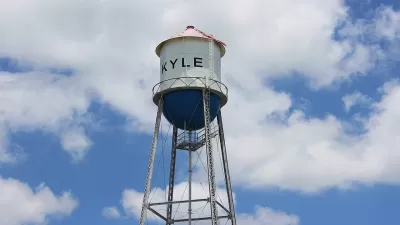Almost a third of the city’s neighborhood streets lack sidewalks.

A Seattle city councilmember is calling on the city to include sidewalks as a mandatory element in its Complete Streets policy, which currently does not explicitly require sidewalks to be built with new transportation projects.
As Ryan Packer explains in The Urbanist, “The Council’s transportation committee got a first look Tuesday at a proposal that would require SDOT to build new sidewalks, and repair existing ones, whenever it completes a ‘major’ repaving project on the adjacent street.”
Packer adds that, in the last audit conducted in 2015, more than 30 percent of non-arterial streets in the city lacked sidewalks. Moreover, “a 2021 audit of the existing sidewalk network revealed that almost half of the sidewalks in the city are in a ‘fair’ or worse condition.”
The situation is complicated by the nebulous status of sidewalk maintenance responsibilities, which often fall on adjacent property owners. According to Cecelia Black, organizer with Disability Rights Washington, “No other public space that we think of operates in such an ambiguous way, without any jurisdiction responsible for maintaining or regulating public spaces.”
For Packer, “This update to the city’s Complete Streets ordinance, while it leaves that conversation around funding until another day, represents a big step forward when it comes to how the mobility of people who walk and roll, and depend on the city’s sidewalks, is treated when it comes to maintaining essential infrastructure.”
FULL STORY: Morales Proposes Adding Sidewalks to Seattle’s Complete Streets Ordinance

Maui's Vacation Rental Debate Turns Ugly
Verbal attacks, misinformation campaigns and fistfights plague a high-stakes debate to convert thousands of vacation rentals into long-term housing.

Planetizen Federal Action Tracker
A weekly monitor of how Trump’s orders and actions are impacting planners and planning in America.

San Francisco Suspends Traffic Calming Amidst Record Deaths
Citing “a challenging fiscal landscape,” the city will cease the program on the heels of 42 traffic deaths, including 24 pedestrians.

Defunct Pittsburgh Power Plant to Become Residential Tower
A decommissioned steam heat plant will be redeveloped into almost 100 affordable housing units.

Trump Prompts Restructuring of Transportation Research Board in “Unprecedented Overreach”
The TRB has eliminated more than half of its committees including those focused on climate, equity, and cities.

Amtrak Rolls Out New Orleans to Alabama “Mardi Gras” Train
The new service will operate morning and evening departures between Mobile and New Orleans.
Urban Design for Planners 1: Software Tools
This six-course series explores essential urban design concepts using open source software and equips planners with the tools they need to participate fully in the urban design process.
Planning for Universal Design
Learn the tools for implementing Universal Design in planning regulations.
Heyer Gruel & Associates PA
JM Goldson LLC
Custer County Colorado
City of Camden Redevelopment Agency
City of Astoria
Transportation Research & Education Center (TREC) at Portland State University
Jefferson Parish Government
Camden Redevelopment Agency
City of Claremont





























